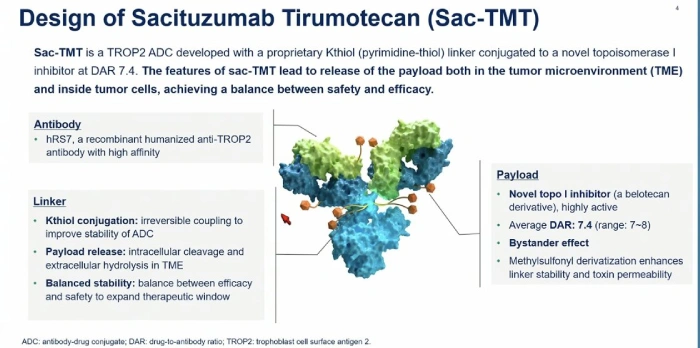UC101’s FDA IND Approval Marks a New Era in Cancer Treatment
VectorBuilder’s partner, Ucello, has recently announced a significant milestone in the field of cellular therapy. On January 11, 2025, their CD19-targeting umbilical cord blood-derived allogeneic CAR-T cell therapy, UC101, received Investigational New Drug (IND) approval from the U.S. Food and Drug Administration (FDA). This approval paves the way for clinical trials in the United States, bringing hope to patients with various diseases, particularly those suffering from CD19-positive cancers such as B-cell lymphomas and leukemias.
VectorBuilder, a leading gene delivery solutions provider, played a crucial role in this achievement by offering highly customized end-to-end CDMO (Contract Development and Manufacturing Organization) services to support the development of UC101. Their expertise in vector design, manufacturing, and quality control ensured that Ucello’s innovative therapy met the stringent requirements for FDA approval.
Dr. Bruce Lahn, Chief Scientist at VectorBuilder, expressed his enthusiasm about this milestone: “Congratulations to Chengdu Ucello on the FDA IND approval of UC101. As the world’s first umbilical cord blood-derived allogeneic CAR-T product, UC101 represents groundbreaking innovation, offering new hope for treating various diseases. We are honored to support this milestone and look forward to deepening our collaboration to advance clinical pipelines, bringing safer and more effective therapies to patients worldwide.”
What Makes UC101 Unique?
UC101 stands out in the crowded field of CAR-T cell therapies due to its unique source and manufacturing process. Unlike traditional autologous CAR-T therapies, which use a patient’s own T cells, UC101 is derived from umbilical cord blood. This allogeneic approach offers several advantages:
1. Off-the-Shelf Availability: Umbilical cord blood-derived CAR-T cells can be manufactured in advance and stored for immediate use, eliminating the lengthy and costly process of collecting and engineering a patient’s own cells.
2. Reduced Risk of Graft-versus-Host Disease (GvHD): Umbilical cord blood T cells are less mature and have a lower likelihood of attacking the recipient’s healthy tissues, a common concern with allogeneic therapies.
3. Scalability: Cord blood banks provide a renewable and ethical source of cells, enabling large-scale production to meet global demand.
The Science Behind UC101
UC101 targets CD19, a protein expressed on the surface of B cells, making it an effective therapy for B-cell malignancies. The therapy involves genetically engineering T cells to express a chimeric antigen receptor (CAR) that recognizes and binds to CD19. Once infused into the patient, these engineered T cells seek out and destroy CD19-positive cancer cells.
The use of umbilical cord blood as the cell source introduces additional layers of complexity and innovation. Cord blood T cells are less differentiated, which may enhance their persistence and efficacy in the body. Moreover, the allogeneic nature of UC101 allows for the possibility of creating a universal CAR-T product that can be used across multiple patients, reducing costs and improving accessibility.
Market Implications and Future Prospects
The FDA’s IND approval of UC101 is a significant step forward in the development of allogeneic CAR-T therapies. If successful in clinical trials, UC101 could revolutionize cancer treatment by providing a more accessible and cost-effective alternative to autologous CAR-T therapies. This is particularly important for patients in low-resource settings or those who cannot wait for the lengthy manufacturing process of personalized therapies.
The collaboration between VectorBuilder and Ucello highlights the importance of strategic partnerships in advancing cutting-edge therapies. By leveraging VectorBuilder’s expertise in gene delivery and manufacturing, Ucello was able to accelerate the development of UC101 and bring it closer to patients in need.
Commentary by SuppBase Columnist Alice Winters

The approval of UC101’s IND application by the FDA is a landmark event in the field of cellular therapy. This therapy represents a convergence of innovation, science, and patient-centric design, offering a promising alternative to traditional CAR-T treatments. The use of umbilical cord blood as a cell source is particularly noteworthy, as it addresses some of the key limitations of autologous therapies, such as manufacturing delays and high costs.
However, as with any groundbreaking therapy, there are challenges to consider. The long-term safety and efficacy of allogeneic CAR-T therapies must be rigorously evaluated in clinical trials. Additionally, the scalability of umbilical cord blood-derived therapies will depend on the availability of cord blood banks and the ability to standardize manufacturing processes.
From a market perspective, UC101 has the potential to disrupt the CAR-T landscape by offering an off-the-shelf solution that could significantly reduce treatment costs and improve accessibility. This is especially relevant in the context of rising healthcare costs and the need for more equitable access to advanced therapies.
In conclusion, UC101 is a testament to the power of innovation and collaboration in the life sciences industry. As clinical trials progress, the healthcare community will be watching closely to see if this therapy can deliver on its promise of safer, more effective, and more accessible cancer treatment. For now, UC101 represents a beacon of hope for patients and a shining example of what can be achieved when science and industry work hand in hand.



